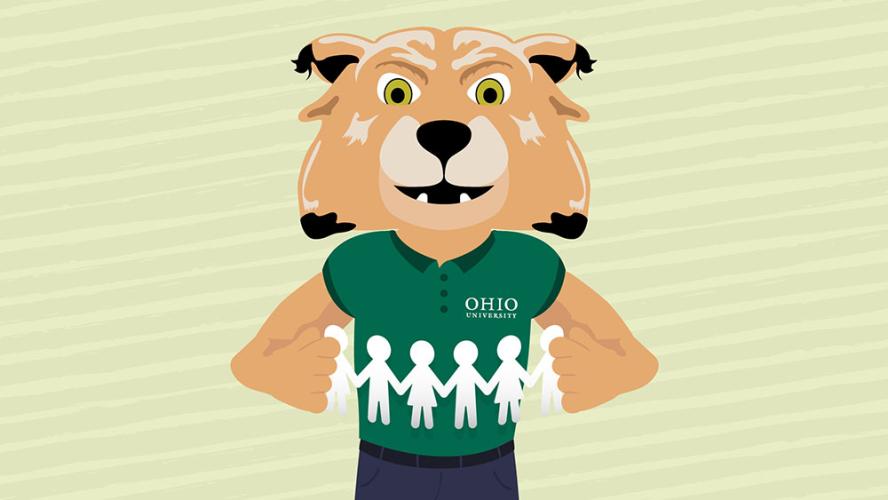

A career in social work is not just a profession—it's a calling.
In a world where career transition is often driven by profit and individual success, social work stands apart as a dedicated space for those looking to create real, tangible change in the lives of individuals and underserved populations.
While we often think of social workers assisting people in acute crises, such as mental health emergencies, personal trauma, or providing immediate support and resources, broader opportunities to impact underserved populations, like policy advocacy, education, and community development, are also part of the social work profession.
Social work is making a positive impact
OHIO’s College of Health Sciences and Professions is currently one of the only interdisciplinary health-focused colleges in the state and offers a nationally respected online master's degree in social work .
Former president of the Student Social Work Association at OHIO and social work master's degree candidate Camryn Smith works for OHIO’s Survivor Advocacy Program, which provides confidential support and advocacy services to student survivors of sexual assault, sexual harassment, dating/domestic violence, and stalking. There, she helps ensure that people experiencing the effects of domestic violence have their needs met and rights protected.
“I have loved the opportunity to learn from the other advocates and staff, as well as provide support for the campus community,” Smith says. “In my position I [can] provide support and information to survivors as an on campus confidential resource. The Survivor Advocacy Program is such an amazing resource for student survivors, and I am genuinely honored to be a part of it."
Smith noted that while obtaining her bachelor’s from OHIO in social work helped her successfully prepare for the licensed social worker exam, earning her master's in social work will open doors for a variety of working environments in which she can apply her talents.
“Getting my MSW will give me enhanced knowledge of clinical skills I plan to use for the rest of my career. I have lots of interests, and I like how social work doesn’t limit me from any of them,” Smith says.
Transition your career: A growing demand for social workers
According to the Bureau of Labor Statistics , social work is one of the fastest-growing professions in the United States, increasing 9 percent faster than the average career with a projected 74,700 job openings annually over the next eight years. More than 700,000 people constitute the social work force nationwide, but that number is expected to rise to almost 800,000 by 2030.
When you transition to a social work degree, career opportunities abound to instill real, tangible change in the lives of underserved individuals and communities. With social issues such as poverty and the opioid crisis impacting people across demographic groups, now is an important time to transition to social work programs, says Kelly Vacca, Assistant Professor of Instruction and Field Director for Online MSW Program.
“As social workers, we work with some of the most vulnerable populations, which means every interaction we have with them is an opportunity to positively impact their lives, regardless of our specific role or title,” Vacca says. And she notes a career in social work allows you to work with a variety of populations.
“I have found students can sometimes have a preconceived idea about what a social worker is or does, based on what they see on TV or in the media. They are often surprised to find that social workers are employed in many settings, including prisons, schools, hospitals, government offices, and even in equine and other animal therapy settings,” she says.
OHIO's 100 percent online MSW program prepares students to serve as clinical social workers with knowledge and skills at the master’s level to improve the well-being for individuals, families, groups, organizations, and communities.
“An MSW degree provides a more in-depth and advanced look at areas such as community development, advocacy, clinical practice, and other specializations not offered at an undergraduate level,” Vacca says.
Vacca notes that knowing exactly which career you want to pursue after earning your MSW isn’t essential—so long as the desire to help others is there. “I believe most students come into the social work program because they want to help people,” Vacca says.
By earning an MSW, career-oriented people equip themselves with the tools, knowledge and credentials to make profound changes in the lives of those who lack a voice. Whether your impact is direct, via person-to-person interactions, or broader, through policy and systemic changes, your potential to improve the lives of countless individuals is immense.

